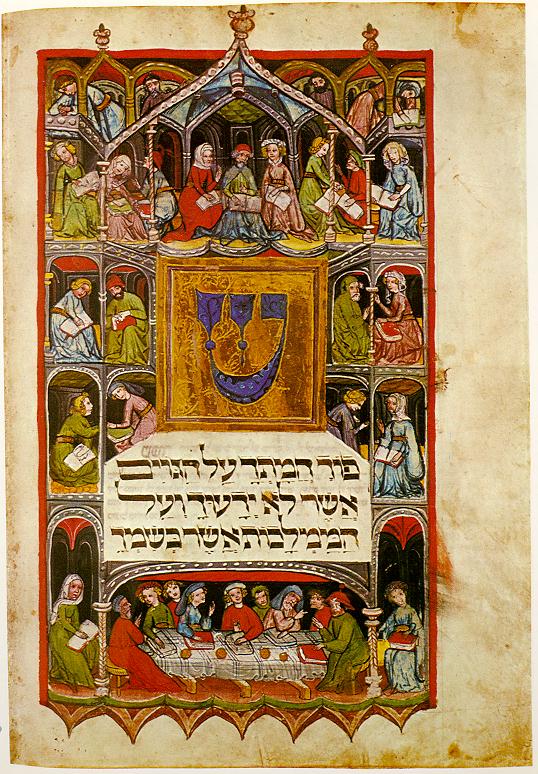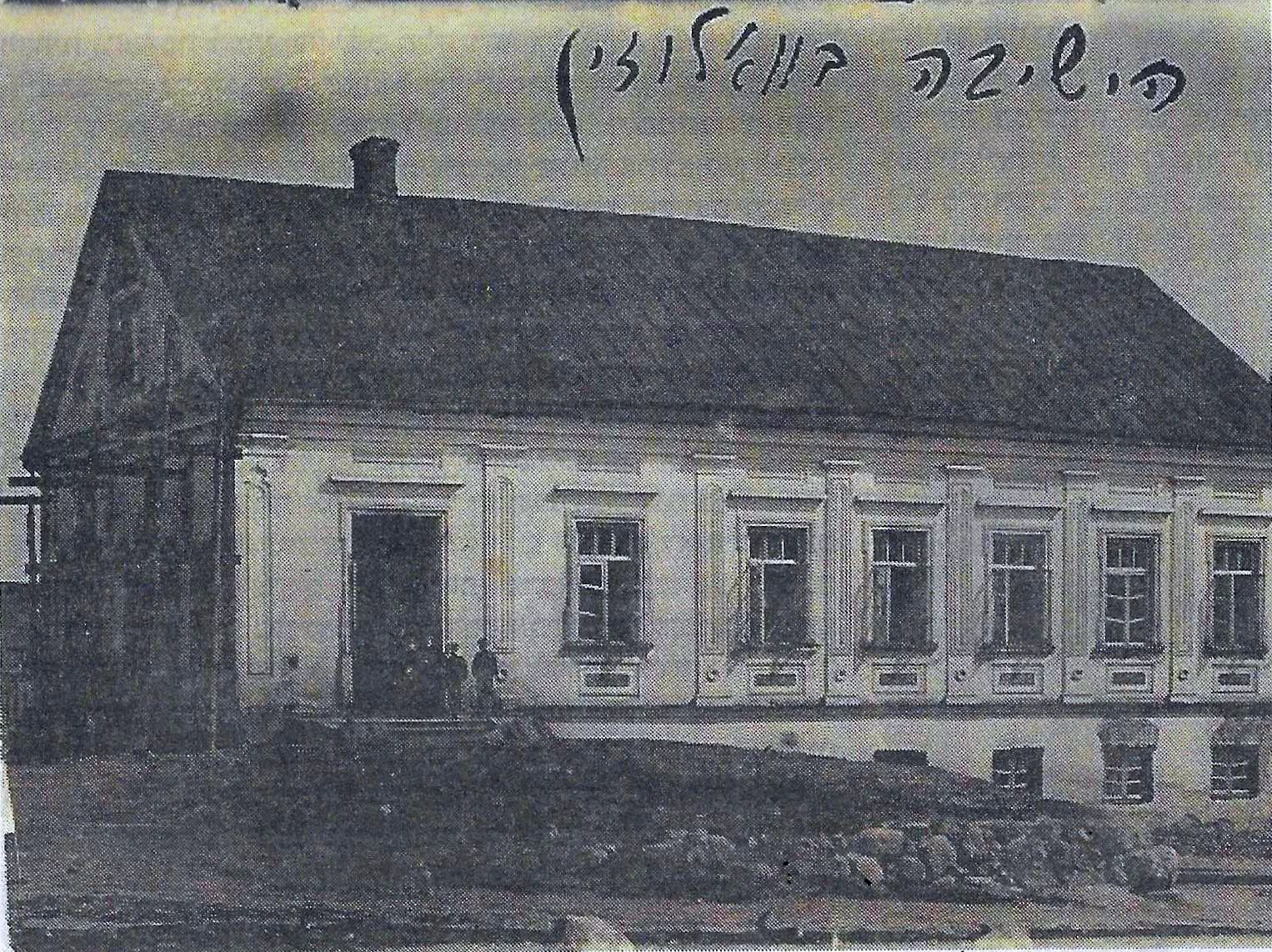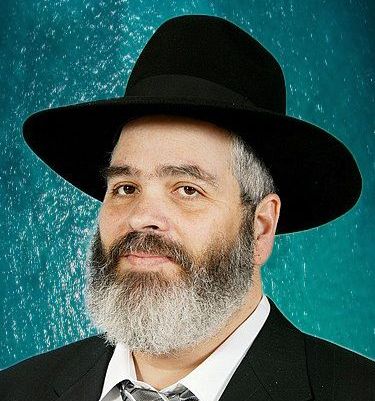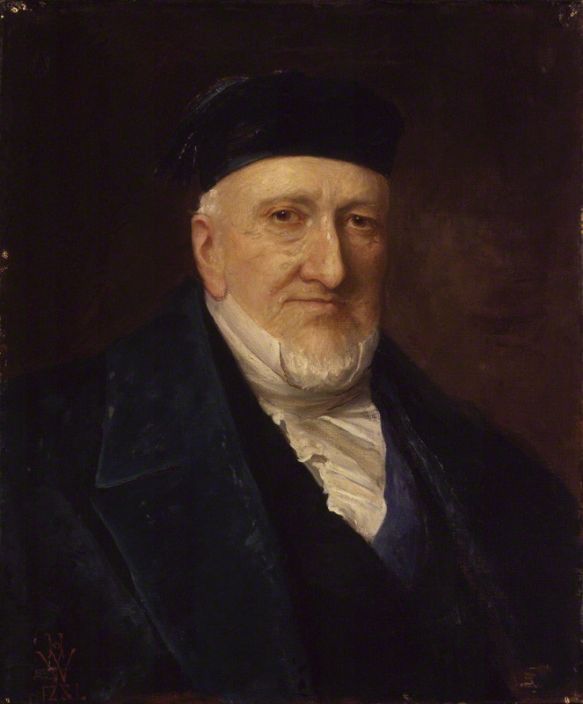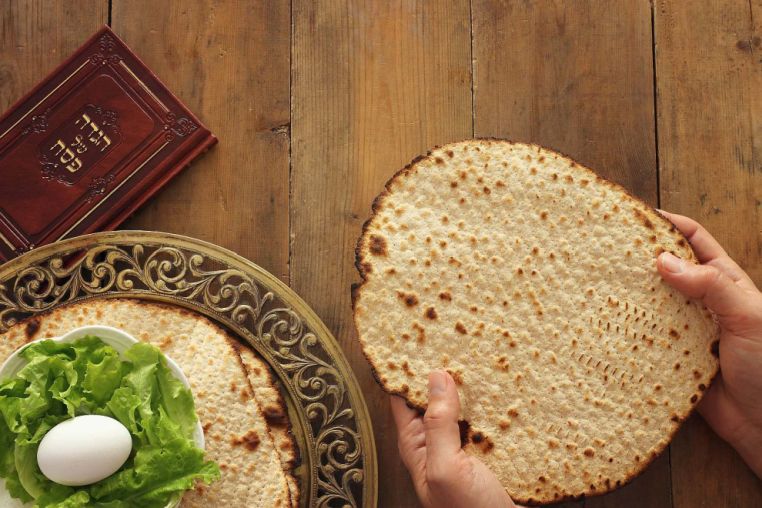  |
|
| ||||||
The next scheduled issue is for after Pesach - parshas Tazria. From the Darmstadt Haggadah: 15th century
This Google Custom Search looks only in this website. Pesach in Yeshivas Volozhin
HaRav Yosef Segal, author of "Toras HaLeviim," born in Volozhin, says that not even on Seder night did the sound of Torah cease in the yeshiva. Study shifts kept the vigil while he made the seder. When he finished, he took his turn in the beis medrash so that the first shift could make their seder. There is testimony to the fact that the Netziv himself made the seder with the yeshiva students.
Yitzchok bar Yehuda (his original name was Bershkovsky from Validkovisk) tells in the name of his father, HaRav Yehuda Bershkovsky, a student in Yeshivas Knesset Yisroel in Chevron, of one Pesach in Yeshiva Volozhin:
OPINION
The time has come to admit that the Rightist camp has lost the battle. For many days people will talk about this scathing defeat, attempting to analyze the reasons behind it. We, in any case, will try in these few lines to discuss what actually took place here.
First and foremost, it was an unbalanced fight. Assad overcame the rebels in Syria when Bashar decided to employ unconventional means by fighting with poisoned gas. The U.S. lehavdil, defeated Japan through two atom bombs, where one side fought according to the rules while the other brazenly trampled them. Such a battle gives the other side no chance whatsoever.
The Rightist camp, since day one, always fought with responsibility, seeing not only its own interests but viewing the entire country as well. Thus, Menachem Being, the head of the Right in his time, who eventually became prime minister, blazed the way in those difficult days of the Rightist camp before the establishment of the State. Persecuted by the Socialists who did not stop at informing, felling physical blows, victimizing and brutal murder, Menachem Begin declared at that time (1 Kislev, 5705):
Part II
Part II
In the first part, we learned of Montefiore's desire, on his trip in 1839, to try to start some sort of light industry for the residents of Jerusalem, to improve their lot.
Fortunate is the man of faith! In order to test his ideas, he acquired a large orchard where various types of fruit trees grew. He then dug a well on the premises, and hired Jewish workers to cultivate the garden. However that was the only agricultural endeavor which took place, for Montefiore's idea was too daring for the Jews of the time, who not only lacked agricultural training, but also feared to cultivate the land that was surrounded by Arab villages.
Montefiore did not despair. Until his final day, he still hoped to realize his plans. When he was ninety, he sent a proclamation to his brethren in Europe, asking them to help implement his plans. His good heart and ayin tovah were still directed toward the Jews of Eretz Yisroel.
Without Policemen
R' Levi Yitzchok of Berditchev once was walking with his shammash on erev Pesach in the early afternoon. The Rebbe met a gentile, a customs smuggler, and asked him:
"Do you have any contraband from the other side of the border?"
"Certainly, come with me. I have plenty at home," answered the smuggler.
Afterward he met a Jew and innocently asked:
"Do you have any chometz at home, perhaps?"
"Now?" stammered the amazed Jew. "Rebbe, it is already erev Pesach after noon!"
R' Levi Yitzchok continued walking and met another Jew, and asked him the same question.
"Rebbe! Are you making fun of me, or are you suspicious of kosher Jews? The time to burn and be mevatel chometz already passed a long time ago!"
R' Levi Yitzchok raised his head Heavenward and exclaimed:
Rain and Kinneret Watch by Dei'ah Vedibur
Staff
Our weekly report of the rain and the level of the Kineret -
Winter, 5783.
* * *
Outstanding Articles From Our Archives
Opinion & Comment
by HaRav A.Y.L. Shteinman
Chinuch Means Getting Results
There are mitzvos which must be done even without us seeing any results. This specific act is what the Torah tells us to do, so it makes no difference whether or not something good will come of it, the mitzvah must always be done nonetheless. In the case of chinuch the result is also important. One's child has to emerge educated.
Chinuch is the most fundamental issue that affects everyone, and everyone knows it. It was so even in earlier generations, before the Torah was given. About Avrohom Ovinu it is written, "For I know him because he instructs his children and his household after him and they follow Hashem's path . . ." ( Bereishis 18:19). Avrohom Ovinu already knew that chinuch is fundamental.
Everyone knows that chinuch takes priority over everything else. One can't build a home without it. If one wants to raise children properly there has to be good chinuch in the home. The Torah obligates a father to train his sons.
There are some mitzvos that we are commanded to do without knowing their purpose. This is simply how the Torah instructs us to behave. It makes no difference whether the consequences will be good or otherwise. Our duty is always to do the mitzvah. Chazal (brochos 10) tell us that when King Chizkiyohu fell ill, the novi Yeshayohu came to him and told him that he would not recover because he had not raised a family. Chizkiyohu replied that he did not marry because he knew that the children that he would have would not be righteous. The novi told him, "Why do you get involved in Divine secrets? You should have done what you are commanded to do and Hashem will do what He wants to do!"
One of the Torah's mitzvos is to beget a family. You must fulfill the mitzvah and as to the results - they aren't your concern.
But there are mitzvos whose fulfillment does depend on the outcome - chinuch, for example. The posuk (Mishlei 29:17) says, "Reprove your son and he will give you peace and will bring delight to your soul [with his conduct]." The gemora (Makkos 8) notes that this applies even to a son who learns. Even though one's son is a good student it's a mitzvah to reprove him.
Is there a mitzvah to simply scold children, even when it's unnecessary for their education? In truth though, the mitzvah is the chinuch. With reproof a good student can become even better, even though he was already good. It is a mitzvah to reprove him so that he'll improve. There's certainly no mitzvah in telling children off for no purpose.
Opinion & Comment
by HaRav Dovid Povarsky zt"l
Part II
In the first part, HaRav Povarsky explained the important principle that one's ma'asim have fruits that benefit the doer himself, namely that the feedback from his good deeds, in turn, causes him to become a better person. His deeds are his fruits, and then these fruits have further fruits from which he himself benefits. In this way, HaRav Povarsky explained how the Jews in the generation of Purim accepted the Torah willingly when the great Dor Hamidbar did not. In the time of Mordechai and Esther, the acceptance was the fruit of deeds: "fasting, crying, and lamenting." The feedback of these acts made the doers great and led them to fully and willingly accept the Torah.
*
This is the process: from the heart springs an act. The heart is where that act is sown - "Just as the mountains are capable of being sown." And from this sowing grow a person's acts, which also sow the most important and greatest fruit: the acts' influence on his heart. Undoubtedly from such a heart will now spring forth even greater acts that will afresh influence the heart beneficially. This is the continuous [feedback loop] process.
Every type of ma'aseh has its own influence. Chesed breeds "love of chesed," and studying Torah breeds "love of Torah." So it is with every act.
by Y. Ben Avi
Part II
The first part followed the early years of Donna Gracia Nasi, born in Portugal. She married into a family of wealthy bankers. Widowed young, she carried on the business. She also raised her nephew Yosef, whose father also died young. The family fled Portugal as the Inquisition became stronger there, moving to London, Antwerp, Italy and eventually Turkey, where they were finally free of Christian persecution.
Pope Paul IV moved quickly against the Jews as soon as he took office in 1555. One of the first to suffer was the community of Ancona, Italy, where a number of secret Jews were living. Donna Gracia asked the Sultan to intervene. He was able to save some of the Jews. Many fled, but 52 were executed as martyrs. The world was horrified by the extreme cruelty displayed. The Nasi family consulted with rabbonim and decided to take action.
*
|
||||||




.jpg)
